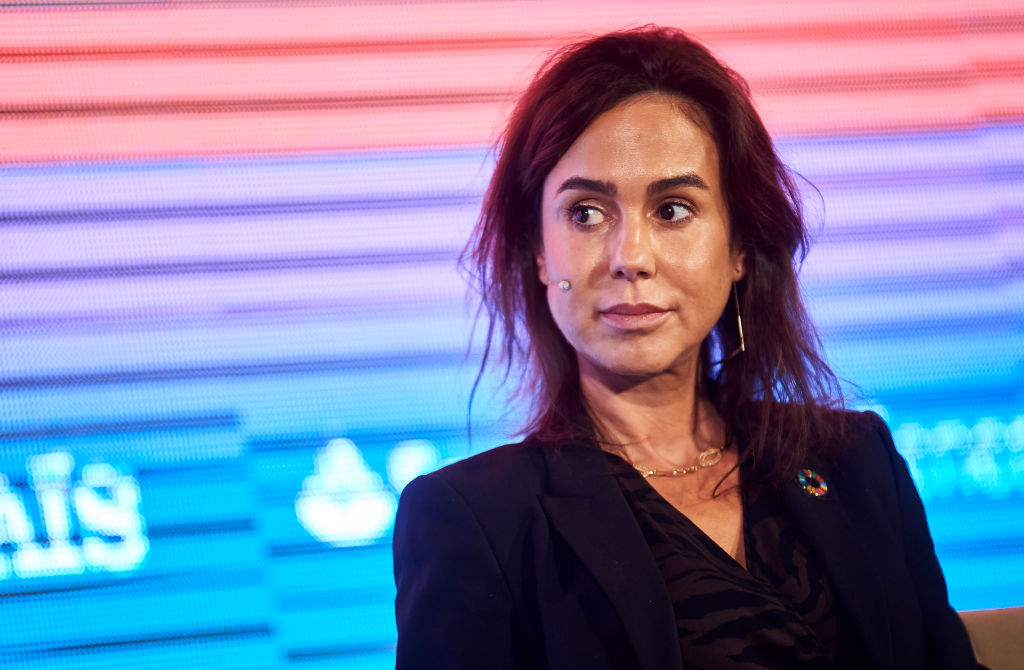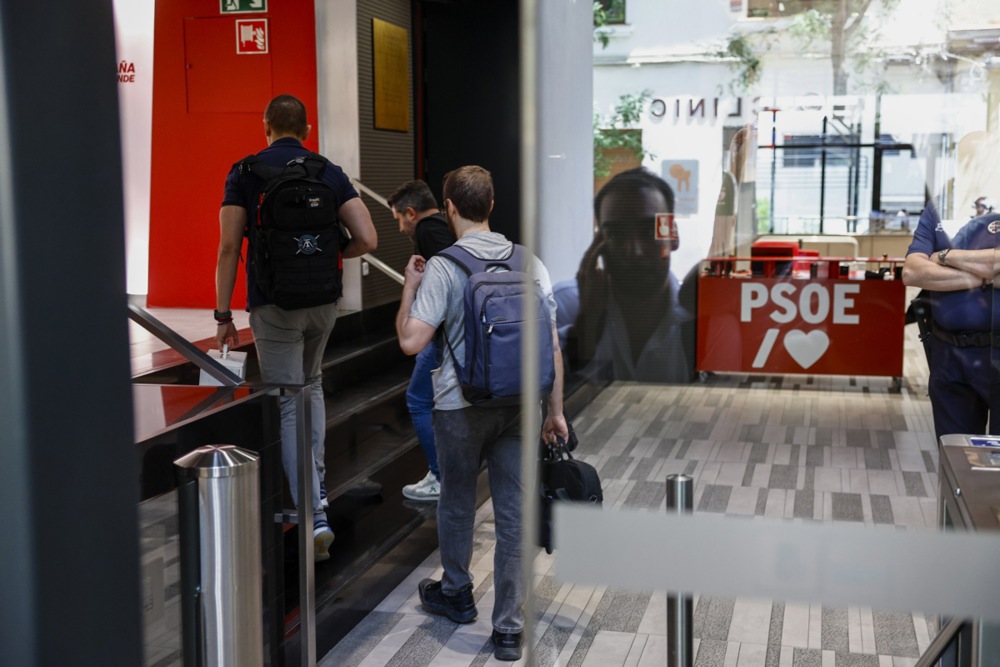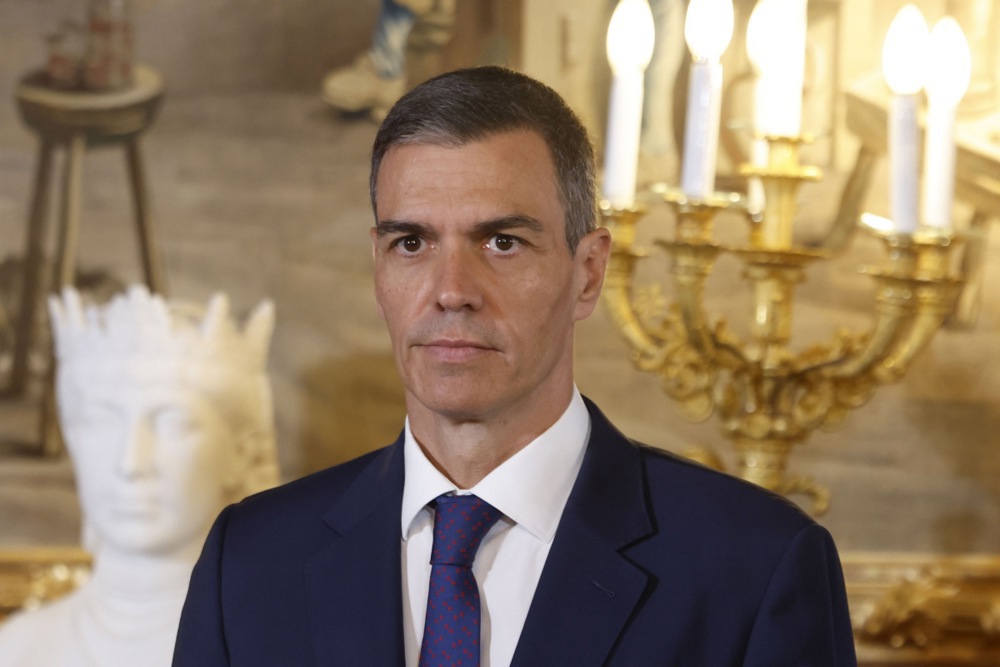Lithuanian Prime Minister Gintautas Paluckas is facing heat over past business dealings, suspicious loans, and ties to a businessman after a report by investigative journalists.
Paluckas’s close ties to businessman Darius Vilčinskas and a series of suspicious activities were the subject of a June 29 report by investigative journalists at online channel Laisvės TV and Siena, a centre for investigative journalism.
A holiday complex called Ąžuolynas received a permit in 2004 to build a yacht club, a restaurant, and hotels for yachtsmen in Juodkrantė, the report found.
However, shortly after construction began, Ąžuolynas sold the buildings to Darius Vilčinskas’s Business Investment Project Centre.
Vilčinskas’s company completed the construction, then sold the buildings to different owners.
Soon after, questions about the legality of the buildings’ construction arose, and in 2010 a court ordered them demolished.
Purchasers had to return the buildings to the Business Investment Project Centre. The company was then supposed to refund the €1.3 million they had paid.
However, this never happened as Vilčinskas’ company declared it was experiencing financial difficulties and began bankruptcy proceedings.
The journalists also found that in 2013, PM Paluckas acquired a newly established company called Sagerta.
The company developed a project mapping the topography of lake beds, called MyLakeMap, but the business was unsuccessful.
Between 2013 and 2017, it nevertheless received €180,000 in loans that were never repaid.
The loans were reportedly issued by a company called Uni Trading, but it was not possible to determine who owned or controlled it–something both Paluckas and Vilčinskas claimed not to know.
However, according to documents from the Centre of Registers, Vilčinskas at one point represented Uni Trading’s interests.
Vilčinskas said the company was a shareholder in Sagerta from the beginning, but due to a human error, this was never registered with the Centre of Registers.
In 2012, PM Paluckas bought a 127 square metre, newly constructed apartment on Vilnius’s Trinapolio Street from Vilčinskas’ company Verslo investicijų projektų centras.
Data the Centre of Registers provided to Siena show the deal was worth €223,000. Both Paluckas and Vilčinskas said the apartment was purchased using legal funds and with a bank loan.
In the summer of 2018, after PM Paluckas fully withdrew from Sagerta and was serving as deputy mayor of Vilnius, the city council decided to expropriate the burned-down Trade Union Palace from a Vilčinskas-linked company (VIPC Vilnius) for public needs, at a cost of nearly €6 million.
A National Concert Hall is currently being built on that site.
The report also found that Garnis, a battery company partly owned by PM Paluckas, received a €200,000 low-interest loan from the national development bank ILTE.
Opposition parties demanded clarity and accountability about the accusations.
In a joint statement, the Conservative and Liberal opposition factions said Paluckas was now under a “shadow of potential corrupt deals, undisclosed loans, and conflicts of interest” which may pose a national security risk.
They urged the president to take “principled action” and hold the prime minister politically accountable.
“A prime minister facing such serious allegations cannot remain in office,” the statement said according to public broadcaster LRT.
Former PM and current speaker of Parliament Saulius Skvernelis said it would not be difficult for the Prime Minister to answer the questions raised in the investigation before Lithuania’s parliament, the Seimas.
In written comments, Paluckas repeatedly stressed he had no joint business interests with Vilčinskas. The businessman, however, says the well-known politician is a family friend.
Authorities are investigating whether the loan was justified and whether the funds are being used appropriately.
The Chief Official Ethics Commission is examining whether Paluckas may have had a conflict of interest when, as Prime Minister, he made decisions related to ILTE–even though Garnis had received a loan from the bank.
PM Paluckas said in response to questions from the media all his financial dealings have been lawful and ethically sound, and he always complied with rules.
Both men avoided direct acknowledgment of who truly controlled Uni Trading and funded Sagerta, leaving questions open on funding and transparency.
In the Seimas, Paluckas dismissed the news investigation.
“Today, so-called investigations have become a business,” Paluckas said. “There’s money to be made from fragments of information wrapped in fiction. That’s not new, either in politics or business.”
He accused the media of generating outrage and confusing, using sensationalism.
He said the reporting style of the journalists was “something between OnlyFans and telephone fraud”.
According to Paluckas the “mistake” regarding the shareholder structure of the company Sagerta, where he held a 55 per cent stake, was corrected in 2015.
The remaining 45 per cent was owned by Vilčinskas’ Uni Trading, he said.





